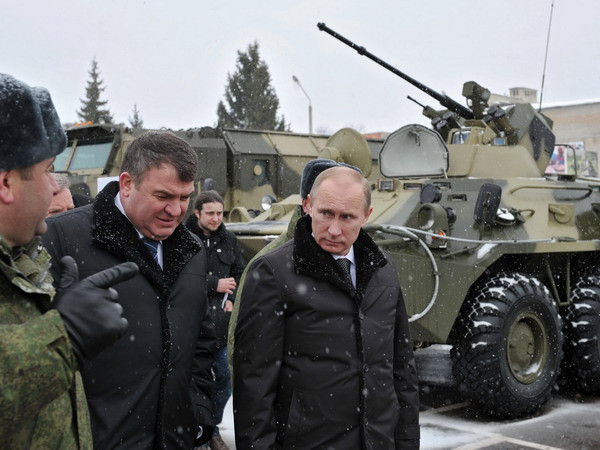"Russia will not intervene militarily in Ukraine"
The prestigious German newspaper Deutsche Welle quoted leading experts on Russia and Eastern Europe as saying that war in Crimea will not happen.
''Russia will not intervene militarily in Ukraine, including in Crimea. I completely rule out this scenario,'' said Gerhard Mangott, a professor of political science at the University of Insbruk, Austria.
 |
| Eastern European researchers believe that Russia will not intervene militarily in Ukraine. (Photo source: AFP-TTXVN) |
Mr. Mangott explained his opinion for two reasons.
''First, military intervention could cause major damage to Russia's relations with Europe and the United States. Second, this argument has more weight - the Ukrainian army would be in a state of serious confrontation.''
Therefore, according to Mr. Mangott, there will be no repetition in Crimea of events similar to those in South Ossetia in August 2008.
The expert believes that Russia's military intervention ''is possible only in the event of clashes between Russians and Ukrainians or with the Crimean Tatars, and in the event of military intervention by the Kiev authorities.'' But the likelihood of such events developing is very small, Mangott emphasizes.
Sharing the same opinion with the Austrian expert, Mr. Christian Wipperfürth, author of the book ''Russian Foreign Policy,'' an expert at the German Foreign Policy Council, said that although he did not completely rule it out, he ''did not expect such an escalation.''
According to Christian Wipperfürth, Russia does not intend to raise the issue of Ukraine's territorial integrity (according to the international commitment on Ukraine's territorial integrity to which Russia was a signatory in 1994), and that talking about the risk of Russian military intervention in Crimea ''only benefits Ukrainian nationalists.''
Referring to the current situation in Ukraine, Professor Gerhard Mangott said, ''Moscow has suffered serious losses,'' by applying the wrong policy towards Ukraine, including the $15 billion credit package for Kiev.
''People believe that this credit package will pull Ukraine towards them,'' said Mr. Gerhard Mangott, while calling President Yanukovich ''an unreliable politician.''
Regarding the future of Ukraine, experts have different assessments.
Professor Peter Schulze of the University of Gettingen said that Russia's upcoming policy towards its unstable neighbor will depend on who wins the upcoming snap election.
''Even if Ukraine were to integrate with the EU, the process would take years. And Moscow and Kiev understand that they need to find common ground,'' said Professor Peter Schulze. Accordingly, the EU and Russia must also seek new opportunities for economic integration, not opposing models.
Mangott, however, has a different view. He believes that Russia will stop providing credit to Ukraine and may cancel the gas price reduction. ''And this will seriously complicate the situation in Ukraine.''
Mr. Mangott believes that Moscow will continue to increase pressure on Kiev to force the new leadership to take into account Moscow's interests.
However, according to Mr. Mangott, on the trade issue, if Russia implements a restrictive policy like it did in 2013 with Kiev, the EU will provide assistance to Ukraine.
Besides, the opportunity to attract Ukraine to join Russia's Customs Union will no longer exist./.
According to VNA






